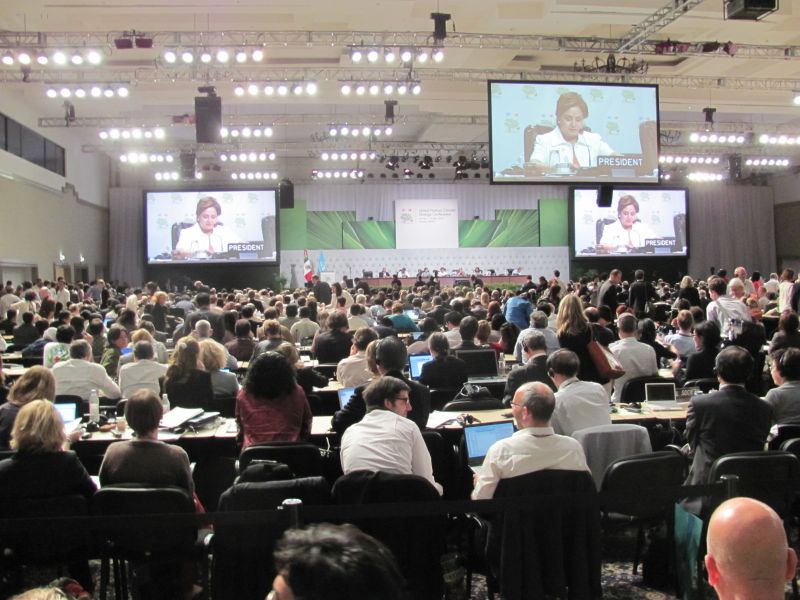I’m in Durban, South Africa, this week for the 17th Conference of the Parties, the annual meeting through the United Nations on climate change. It’s been calm here, with little of the tension and chaos of previous COPs. But that’s largely because no one thinks that much is going to happen here.
The US position in the Durban climate talks remains, much like it’s been for the past three years, that there’s no big rush on climate change. A legally binding climate agreement, the US negotiating team has maintained, isn’t as important as countries simply making good on the emission-cutting targets they’ve already laid out.
Of course, this soft stance is largely because our negotiators (and the rest of the world) know that the US is going to be a hard sell on a treaty. No one needs to be reminded that there’s still no domestic climate policy in the US. The US agreed, first under the political agreement in Copenhagen and the official UN Framework Convention on Climate Change processes in Cancun, to cut emissions. But compared to other nations, that goal is pretty pathetic—an emissions cut of 17 percent below 2005 levels, when most other developed countries are working from a baseline of much lower 1990 emissions.
Even with that small of a goal, we’re not that far along in meeting it. In a press conference on Monday, US Climate Envoy Todd Stern was asked about progress in the US on meeting that goal. That answer isn’t exactly clear. Stern gave an unofficial estimate that the US has cut emissions 6 percent from 2005 levels so far, and pushed back on the idea that the US hasn’t done anything. “I think that a good deal has been done by the US already, more than has ever been done before,” said Stern. He cited several of the Obama administration’s early actions, like increasing vehicle emission standards and investing in clean technology through the 2009 stimulus.
“It’s 2011 now,” he said. “We’ve got more than eight years to go with respect to the 2020 target.”
Of course, it’s not really that simple. The US can’t just wake up in January 2019 and say, hey, let’s cut our emissions another 11 percent in 12 months (and probably won’t, if Newt Gingrich is president then). Moreover, the US will have to start, at some point, reporting on how much progress it’s made on that goal formally to the rest of the world. Transparency about emissions has been, after all, the US negotiators’ top priority in an agreement, and a top source of tension with other big players like China. The US will, at some point, have to be transparent about just how much it is doing at home.
Still, the US has been pretty reluctant to even have a conversation about turning the pledges into a new, legally binding treaty. Instead, the US negotiating team argues, that the current goals are firm enough under the Cancun agreement, and countries will live up to them. Stern decried “an excess of focus” on a legal agreement “as the be all and end all.” That, however, is unlikely to be enough for other countries, who want to make sure that the US (and everyone else) is actually living up to the promises they’ve made on paper.













